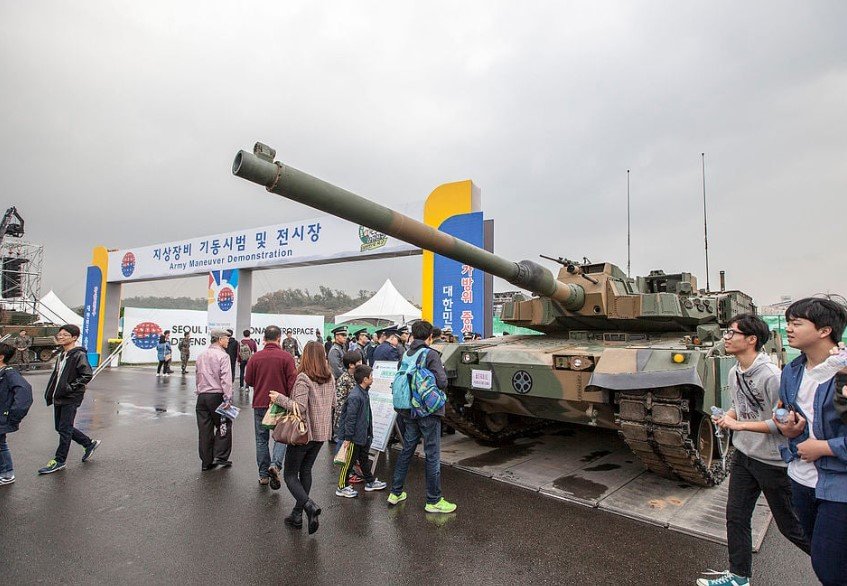The United States and Saudi Arabia are set to seal a $142 billion arms deal that could dramatically change Middle East defense dynamics. Yet, the U.S. pledge to maintain Israel’s military edge casts a shadow over Riyadh’s ambitions, particularly when it comes to the coveted F-35 jets.
The Deal’s Promise and the Regional Balance of Power
This deal, announced by the White House on May 13, is being called the largest defense sales agreement in history. It promises to equip Saudi Arabia with some of America’s most advanced weaponry and technology. The official fact sheet highlights five key areas for upgrade: air force and space capabilities, missile defense, coastal security, and more.
But here’s the catch — Saudi Arabia reportedly wants F-35 fighter jets, among the most advanced stealth aircraft available. These jets aren’t just top-tier gear; they’re a symbol of aerial dominance. Yet, selling them to Riyadh would clash directly with a long-standing U.S. policy: preserving Israel’s Qualitative Military Edge (QME).
Simply put, QME means Israel must maintain a technological and operational advantage over any potential adversary in the region. For decades, this policy has shaped American arms sales, keeping some cutting-edge weapons off the market for neighbors like Saudi Arabia.
The U.S. commitment to QME has already ruled out some weapons transfers before. Now, it’s likely that the F-35s will remain off-limits, despite Saudi Arabia’s interest. This limitation underscores a delicate balancing act — how to strengthen an ally like Saudi Arabia without unsettling Israel’s security.

The Importance of Israel’s Qualitative Military Edge
Israel’s QME isn’t just a political promise; it’s baked into U.S. law. Congress mandates that the U.S. must ensure Israel can defend itself against a range of military threats in the Middle East.
So, when Saudi Arabia asks for F-35 jets, the U.S. faces a tough call. The jets provide a huge leap in air combat capability, with stealth features and advanced avionics. If Saudi Arabia had these, it could theoretically challenge Israel’s air superiority — a red line for Washington.
This is why experts say the arms deal, while massive, will probably exclude the F-35. Instead, Riyadh might get other sophisticated systems — missile defense batteries, upgraded F-15s, and naval assets, for example.
Israel, for its part, has conducted joint exercises featuring F-35i jets alongside American F-15s, showcasing a combined air force strength. This not only reassures Israeli citizens but signals to other nations where the balance of power currently sits.
What Saudi Arabia Could Actually Get
While the F-35 might be a no-go, the deal is still huge and will deliver serious upgrades to Saudi Arabia’s military.
Here’s a rough idea of what’s likely on the table:
-
Advanced air force capabilities: Possibly new F-15EX jets and upgrades to existing fleets.
-
Missile defense systems: Enhanced Patriot missile batteries and other anti-ballistic missile technology.
-
Space capabilities: Equipment to monitor threats from above and improve communication.
-
Coastal and maritime security: Systems to protect Saudi’s critical ports and waterways.
| Capability Area | Potential Equipment | Purpose |
|---|---|---|
| Air Force | F-15EX fighters, drones | Air superiority and strike power |
| Missile Defense | Patriot missile systems | Defense against ballistic threats |
| Space Systems | Surveillance satellites, comm tech | Early threat detection |
| Maritime Security | Radar systems, patrol boats | Coastal and shipping lane defense |
While it’s still early, and official details remain vague, the arms deal’s sheer scale means Saudi Arabia’s military profile in the Middle East will grow significantly. But without the F-35s, Riyadh’s air force won’t quite match Israel’s stealth and electronic warfare edge.
The Political Stakes Behind the Deal
This arms package isn’t just about hardware. It sends a message about the U.S.’s evolving alliances and priorities in the Middle East.
Trump’s administration touted the deal as a “historic” step toward strengthening ties with Saudi Arabia. After years of fluctuating U.S. involvement in the region, Riyadh looks to the U.S. for security guarantees against threats like Iran.
Yet, Washington’s refusal to fully meet Saudi demands — especially on F-35s — highlights the ongoing tension between supporting regional partners and safeguarding Israel’s supremacy.
It’s a tightrope walk. Push too far, and Israel’s security concerns could disrupt the broader alliance. Hold back too much, and Saudi Arabia may seek other partners or technologies.
The ongoing Iran threat adds urgency. Riyadh wants the best gear to counter ballistic missiles and proxy forces. The U.S. wants to keep the balance stable without escalating an arms race.
What This Means for Middle East Security Going Forward
The deal could reshape regional military balances, but it also underscores enduring rivalries and distrust. Here’s why it matters:
-
Saudi Arabia’s military strength will rise sharply, enhancing its deterrence.
-
Israel will remain firmly ahead in technology and combat readiness, thanks to QME.
-
Regional powers will watch closely to see if this deal sparks new arms competitions.
-
U.S. foreign policy will be tested balancing partnerships and security commitments.
While the arms deal sounds massive, it’s a reminder that big defense sales come with strings attached. The U.S. can’t ignore its pledge to Israel, even when courting other allies.
The Middle East’s security dance is complex. Sometimes, even billion-dollar deals have limits.
